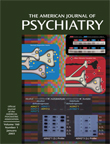Dr. Koran and Colleagues Reply
To the Editor: We appreciate the comments of Drs. Jainer and Onalaja. We support the CONSORT group’s recommendation that the disposition of all patients considered for a trial be reported (and the other CONSORT recommendations [Begg et al., 1996]). These recommendations were published 3 years after we began our trial in 1993—too late to influence our data-gathering procedures.
The proper use of placebo controls remains a contentious issue (1). Most regard their use as ethical if no increase in mortality and no irreversible morbidity are expected (1). Critics argue they should not be used once the efficacy of one treatment is confirmed. The use of placebo controls in our study met both ethical tests. Our study did not entail risks of mortality or irreversible morbidity. Moreover, ours was the first controlled study of medication discontinuation after 12 months of successful treatment of obsessive-compulsive disorder (OCD). Whether to continue effective anti-OCD medication beyond this point in patients doing well was an important unanswered clinical question when our study began. As we noted, uncontrolled studies suggesting substantial relapse rates involved much shorter treatment periods before discontinuation. We found that, compared to continued treatment with sertraline, discontinuation was associated with markedly higher rates of acute symptom exacerbation, insufficient clinical response, and deterioration in the quality of life. This knowledge can improve treatment, since these risks can now be presented to patients when they weigh the cost and risks (e.g., side effect rates) of continuing medication. The study investigators’ sensitivity to the best interests of the study patients was evidenced by the fact that few were allowed to meet the a priori relapse criterion—substantial symptom exacerbation observed at three visits over 1 month. Most patients discontinued from the study by investigators were discontinued for insufficient clinical response after one visit or after two visits over 2 weeks. Finally, although the Declaration of Helsinki stipulates that the appropriate test of a new treatment is against the best current treatment, when our study was designed, the best current maintenance treatment for OCD was unknown. Moreover, the National Depressive and Manic Depressive Association, which is the largest patient-directed organization in the mental health field, has issued a consensus statement that delineates considerations for the appropriate use of placebo controls (2). The consensus panel included clinical researchers, biostatisticians, bioethicists, and consumers. Our study design met the ethical tests expressed in that document.
Reprints are not available; however, Letters to the Editor can be downloaded at http://ajp.psychiatryonline.org.
1. Walsh BT, Seidman SN, Sysko R, Gould M: Placebo response in studies of major depression: variable, substantial, and growing. JAMA 2002; 287:1840-1847Crossref, Medline, Google Scholar
2. Charney DS, Nemeroff CB, Lewis L, Laden SK, Gorman JM, Laska EM, Borenstein M, Bowden CL, Caplan A, Emslie GJ, Evans DL, Geller B, Grabowski LE, Herson J, Kalin NH, Keck PE Jr, Kirsch I, Krishnan KRR, Kupfer DJ, Makuch RW, Miller FG, Pardes H, Post R, Reynolds MM, Roberts L, Rosenbaum JF, Rosenstein DL, Rubinow DR, Rush AJ, Ryan ND, Sachs GS, Schatzberg AF, Solomon S (Consensus Development Panel): National Depressive and Manic-Depressive Association consensus statement on the use of placebo in clinical trials of mood disorders. Arch Gen Psychiatry 2002; 59:262-270Crossref, Medline, Google Scholar



